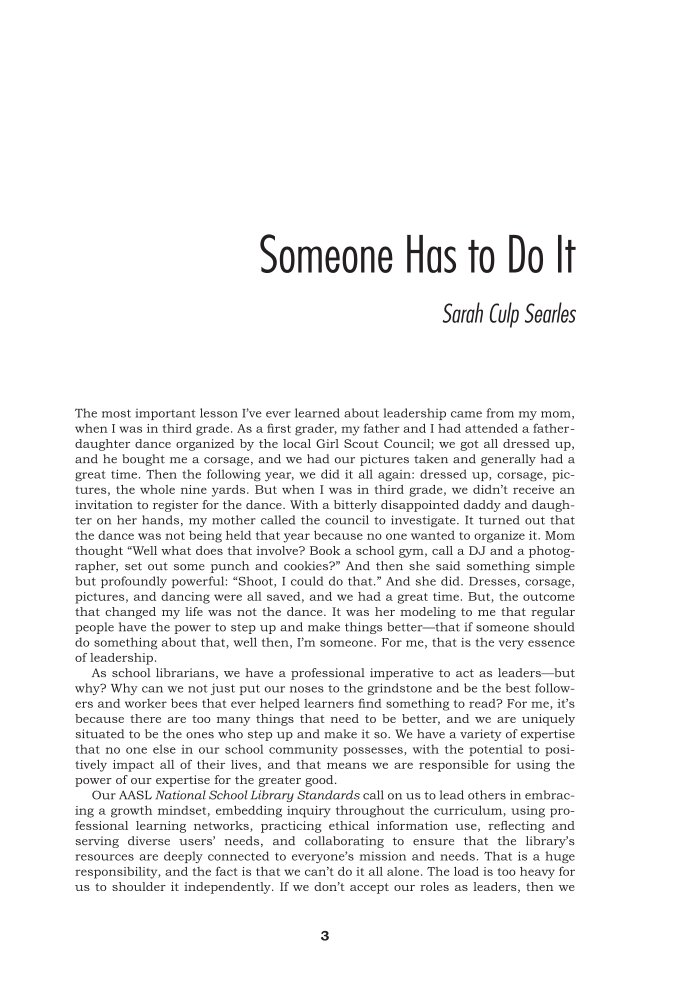3 Someone Has to Do It Sarah Culp Searles The most important lesson I’ve ever learned about leadership came from my mom, when I was in third grade. As a first grader, my father and I had attended a father- daughter dance organized by the local Girl Scout Council we got all dressed up, and he bought me a corsage, and we had our pictures taken and generally had a great time. Then the following year, we did it all again: dressed up, corsage, pic- tures, the whole nine yards. But when I was in third grade, we didn’t receive an invitation to register for the dance. With a bitterly disappointed daddy and daugh- ter on her hands, my mother called the council to investigate. It turned out that the dance was not being held that year because no one wanted to organize it. Mom thought “Well what does that involve? Book a school gym, call a DJ and a photog- rapher, set out some punch and cookies?” And then she said something simple but profoundly powerful: “Shoot, I could do that.” And she did. Dresses, corsage, pictures, and dancing were all saved, and we had a great time. But, the outcome that changed my life was not the dance. It was her modeling to me that regular people have the power to step up and make things better—that if someone should do something about that, well then, I’m someone. For me, that is the very essence of leadership. As school librarians, we have a professional imperative to act as leaders—but why? Why can we not just put our noses to the grindstone and be the best follow- ers and worker bees that ever helped learners find something to read? For me, it’s because there are too many things that need to be better, and we are uniquely situated to be the ones who step up and make it so. We have a variety of expertise that no one else in our school community possesses, with the potential to posi- tively impact all of their lives, and that means we are responsible for using the power of our expertise for the greater good. Our AASL National School Library Standards call on us to lead others in embrac- ing a growth mindset, embedding inquiry throughout the curriculum, using pro- fessional learning networks, practicing ethical information use, reflecting and serving diverse users’ needs, and collaborating to ensure that the library’s resources are deeply connected to everyone’s mission and needs. That is a huge responsibility, and the fact is that we can’t do it all alone. The load is too heavy for us to shoulder it independently. If we don’t accept our roles as leaders, then we
Document Details My Account Print multiple pages
Print
You have printed 0 times in the last 24 hours.
Your print count will reset on at .
You may print 0 more time(s) before then.
You may print a maximum of 0 pages at a time.











































































































































































































































































































































